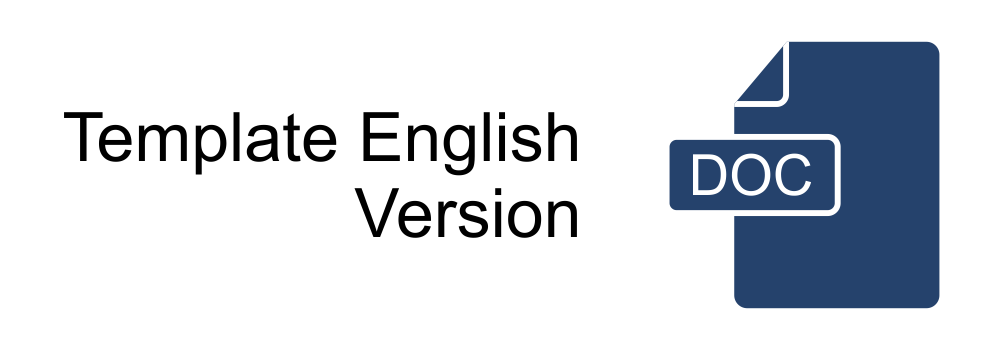Prinsip Kerja Sama pada Tindak Tutur dalam Persidangan di Pengadilan
Abstract
The objective of this study is to examine the cooperative principle contained in the trials at Banda Aceh District Court. The cooperative principle examined in this study consists of the maxim of quality, the maxim of quantity, the maxim of manner, and the maxim of relevance. Data for the study was drawn from nine court cases involving specific and general crimes. Data collection was carried out by recording the trials with a voice recorder. Triangulation of data was carried out by linking the cooperative principle contained in the trial with the cooperative principle theory and comparing them with the findings of other researchers. The writer concluded that the maxims of quality and quantity contained in the trial are confirmation questions. This is because the judge already knows the answer because it is in the minutes. The defendant's answers were informative and did not exceed the judge's expectations. At the same time, the application of the maxim of the manner in the trial can occur because the information provided regarding the judge's questions is answered by the speech partner clearly and regularly. This is equivalent to the maxim of relevance which requires the exchange of information to be in accordance with the topic expected by the questionnaire.
Abstrak
Penelitian ini bertujuan mengkaji prinsip kerja sama yang terdapat dalam persidangan di Pengadilan Negeri Banda Aceh. Prinsip kerja sama yang diteliti dalam penelitian ini terdiri atas maksim kualitas, maksim kuantitas, maksim cara, dan maksim relevansi. Data penelitian berupa sembilan perkara persidangan yang meliputi pidana khusus dan pidana umum yang disidangkan. Pengumpulan data dilakukan dengan merekam persidangan dengan alat bantu perekam suara. Triangulasi data dilakukan dengan cara mengaitkan prinsip kerja sama yang terdapat dalam persidangan dengan teori prinsip kerja sama dan membandingkan dengan hasil penelitian yang dilakukan oleh peneliti lainnya. Penulis menyimpulkan bahwa maksim kualitas dan kuantitas yang terdapat dalam persidangan merupakan pertanyaan konfirmasi sebab hakim sudah mengetahui jawaban tersebut karena terdapat dalam berita acara. Jawaban yang diberikan oleh terdakwa bersifat informatif dan tidak melebihi ekspektasi hakim. Penerapan maksim cara dalam persidangan terjadi karena informasi yang diberikan dijawab oleh mitra tutur secara jelas dan teratur. Hal itu sejajar dengan maksim relevansi yang mengharuskan pertukaran informasi haruslah sesuai dengan topik yang diharapkan oleh penanya.
Keywords
Full Text:
PDFReferences
Budiyanto, D. (2013). Penyimpangan Implikatur Percakapan Dalam Humor-Humor Gus Dur. Litera, 8(2), 105–117. https://doi.org/10.21831/ltr.v8i2.1206
Burukina, O. (2012). Legal Language: A Realm of Contradictions. Contemporary Readings in Law and Social Justce, 4(2), 708–723.
Choukroune, L. (2016). The Language of Rights and the Politics of Law: Perspectives on China’s Last Legal Ditch Struggle. International Journal for the Semiotics of Law, 29(4), 779–803. https://doi.org/10.1007/s11196-015-9436-7
Cummings, L. (1999). Pragmatics: a Multidisciplinary Perspective. New York: Routledge.
Farimaya, N. U. (2017). Analisis Pelanggaran Prinsip Kerjasama Studi Kasus Sidang Pembunuhan Angeline (Kajian Pragmatik). Universitas Brawijaya.
Leech, G. (2015). Prinsip-Prinsip Pragmatik (Terjemahan Oka, M.D.D. ). Jakarta: Universitas Indonesia Press.
Leech, G. N. (1983). Principles of Pragmatics. New York: Taylor & Francis.
Martinich, A. (2001). A Theory of Fiction. Philosophy and Literature, 25(1), 96–112. https://doi.org/10.1353/phl.2001.0014
Murniah. (2007). Bahasa Hukum Rumit dan Membingungkan. Wawasan.
Myška, M., Smejkalová, T., Šavelka, J., & Škop, M. (2012). Creative Commons and Grand Challenge to Make Legal Language Simple. In M. Palmirani, U. Pagallo, P. Casanovas, & G. Sartor (Eds.), AI Approaches to the Complexity of Legal Systems. Models and Ethical Challenges for Legal Systems, Legal Language and Legal Ontologies, Argumentation and Software Agents (pp. 271–285). Springer Berlin Heidelberg.
Nuthihar, R., Bangun, T. A., & Wahdaniah. (2019). Kalimat Tanya dalam Persidangan di Pengadilan Negeri Banda Aceh. MEDAN MAKNA: Jurnal Ilmu Kebahasaan Dan Kesastraan, 17(2), 157–170. https://doi.org/10.26499/mm.v17i2.2138
Nuthihar, R., Mursyidin, & Wahdaniah. (2020). Karakteristik Ragam Bahasa Hukum dalam Persidangan di Pengadilan Negeri Banda Aceh. Jurnal Metamorfosa, 8(1), 90–104. https://doi.org/10.46244/metamorfosa.v8i1.343
Pfister, J. (2010). Is there a need for a maxim of politeness? Journal of Pragmatics, 42(5), 1266–1282. https://doi.org/10.1016/j.pragma.2009.09.001
Putrayasa, I. B. (2014). Pragmatik. Yogyakarta: Graha Ilmu.
Rahardi, R. K. (2003). Berkenalan dengan Ilmu Bahasa Pragmatik. Malang: Dioma.
Rahardi, R. K. (2009). Imperatif Dalam Bahasa Indonesia.
Yogyakarta: Duta Wacana University Press.
Rahardi, R. K. (2015). Sosiopragmatik. Jakarta: Erlangga.
Rohmadi, M. (2010). Pragmatik Teori dan Analisis. Surakarta: Yuma Pustaka.
Shanty, W. Y. (2016). Analisis Terhadap Fungsi Bahasa Indonesia Hukum dalam Mewujudkan Kepastian Hukum. Jurnal Cakrawala Hukum, 7(2), 268–280. https://doi.org/10.26905/idjch.v7i2.1917
Sipayung, Q., Tiani, R., & Astuti, S. P. (2020). Pelanggaran Prinsip Kerja Sama pada Persidangan Jessica Kumala Wongso. 1–13.
Subiyatningsih, F. (2017). Prinsip Kelakar Dan Prinsip Daya Tarik Dalam Wacana Cakcuk (Joke and Attraction Principles in Cakcuk Discourse). Widyaparwa, 45(1), 80–92. https://doi.org/10.26499/wdprw.v45i1.152
Utami, I. I. (2018). Strategi Humor pada Acara Stand Up Comedy. Adabiyyāt: Jurnal Bahasa Dan Sastra, 2(1), 219–245. https://doi.org/10.14421/ajbs.2018.02204
Wahyunianto, D., Djatmika, D., & Purnanto, D. (2020). Grice’S Cooperative Principles Violation in the Communication of Children With Autism. Sosiohumaniora, 22(1), 36–45. https://doi.org/10.24198/sosiohumaniora.v22i1.24378
Yayuk, R. (2020). Tuturan Makelar Penyebab Konflik pada Transaksi Jasa Angkutan Umum. Suar Bétang, 15(2), 117–128. https://doi.org/10.26499/surbet.v15i2.105
Yule, G. (2014). Pragmatik. Yogyakarta: Pustaka Pelajar.
DOI: https://doi.org/10.26499/surbet.v17i1.271
Refbacks
- There are currently no refbacks.

This work is licensed under a Creative Commons Attribution-NonCommercial-ShareAlike 4.0 International License.
This work is licensed under a Creative Commons Attribution-NonCommercial-ShareAlike 4.0 International License.












